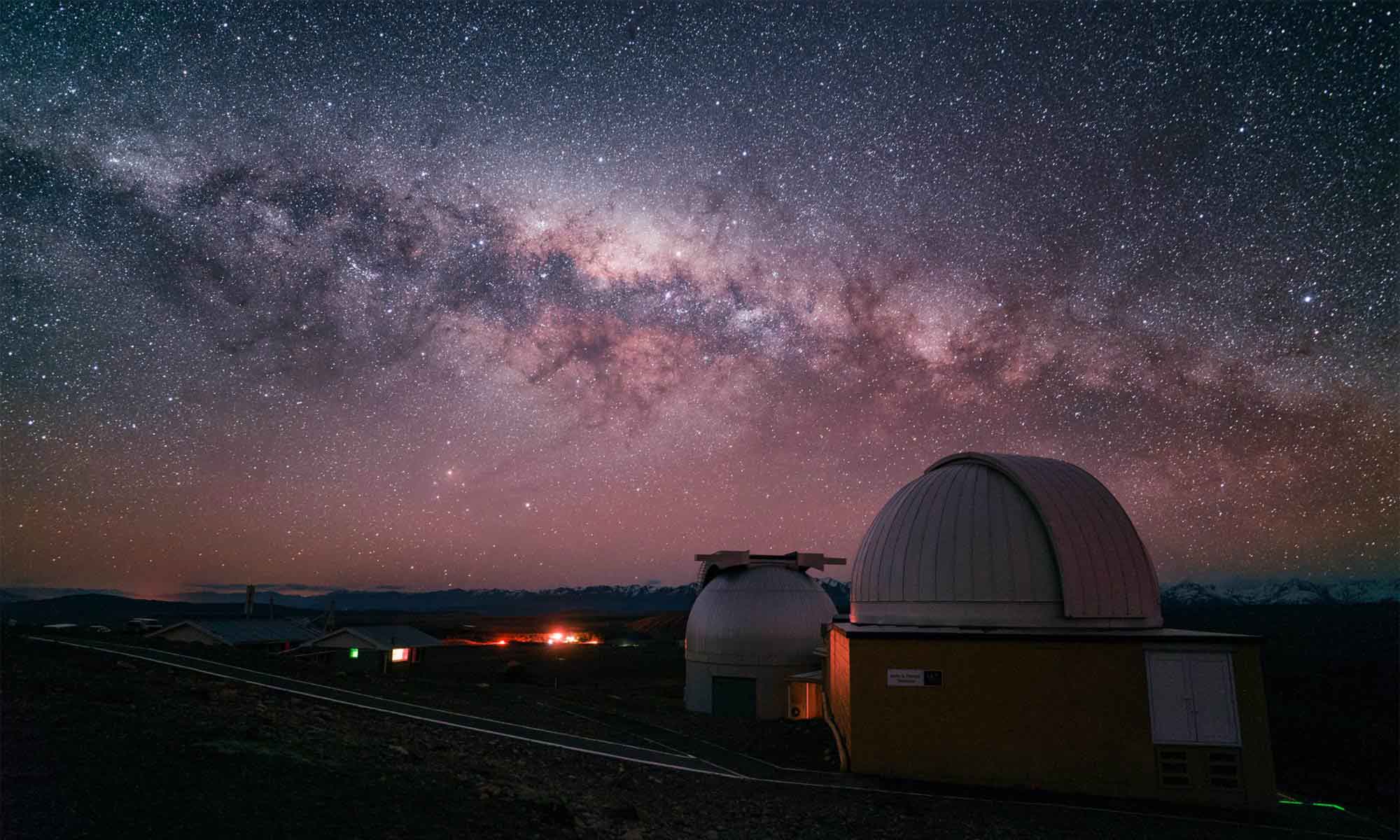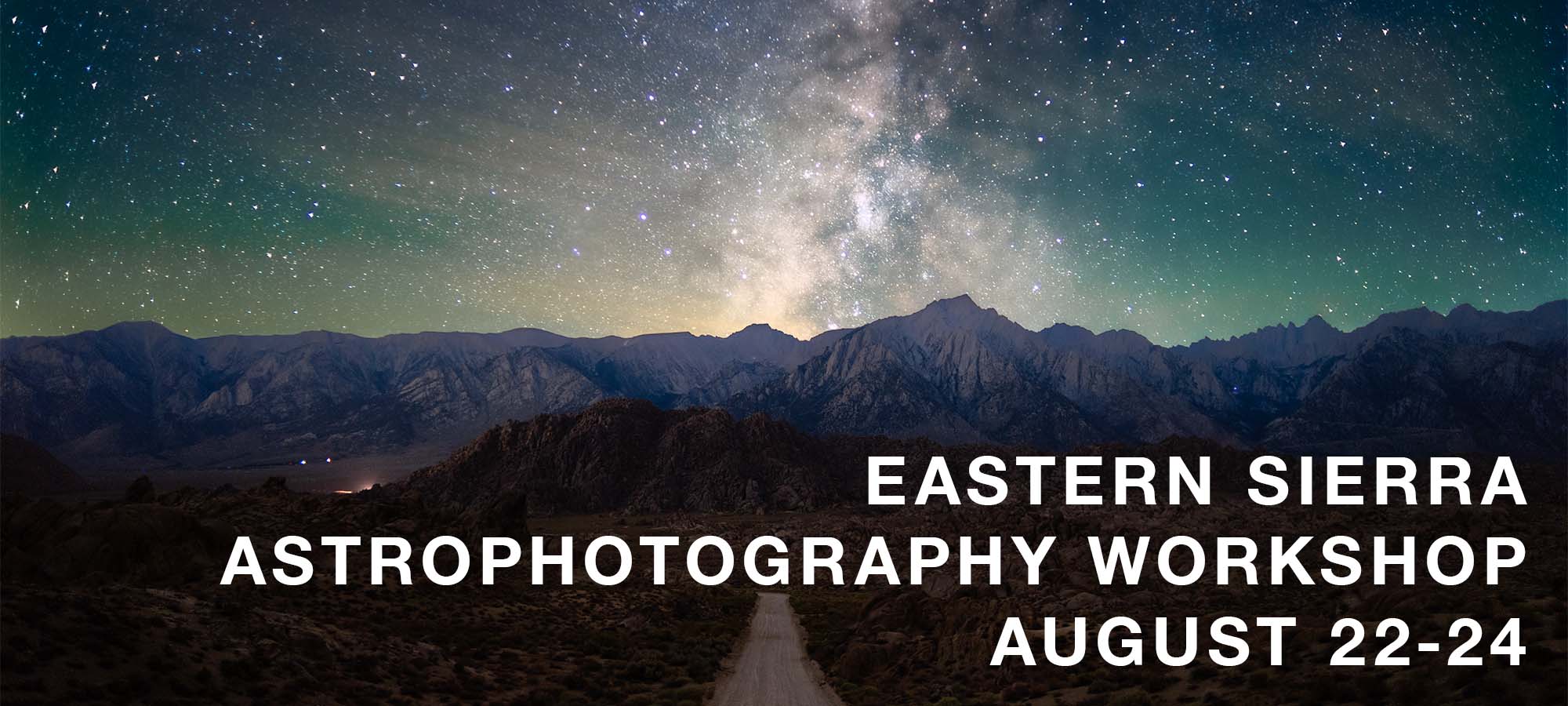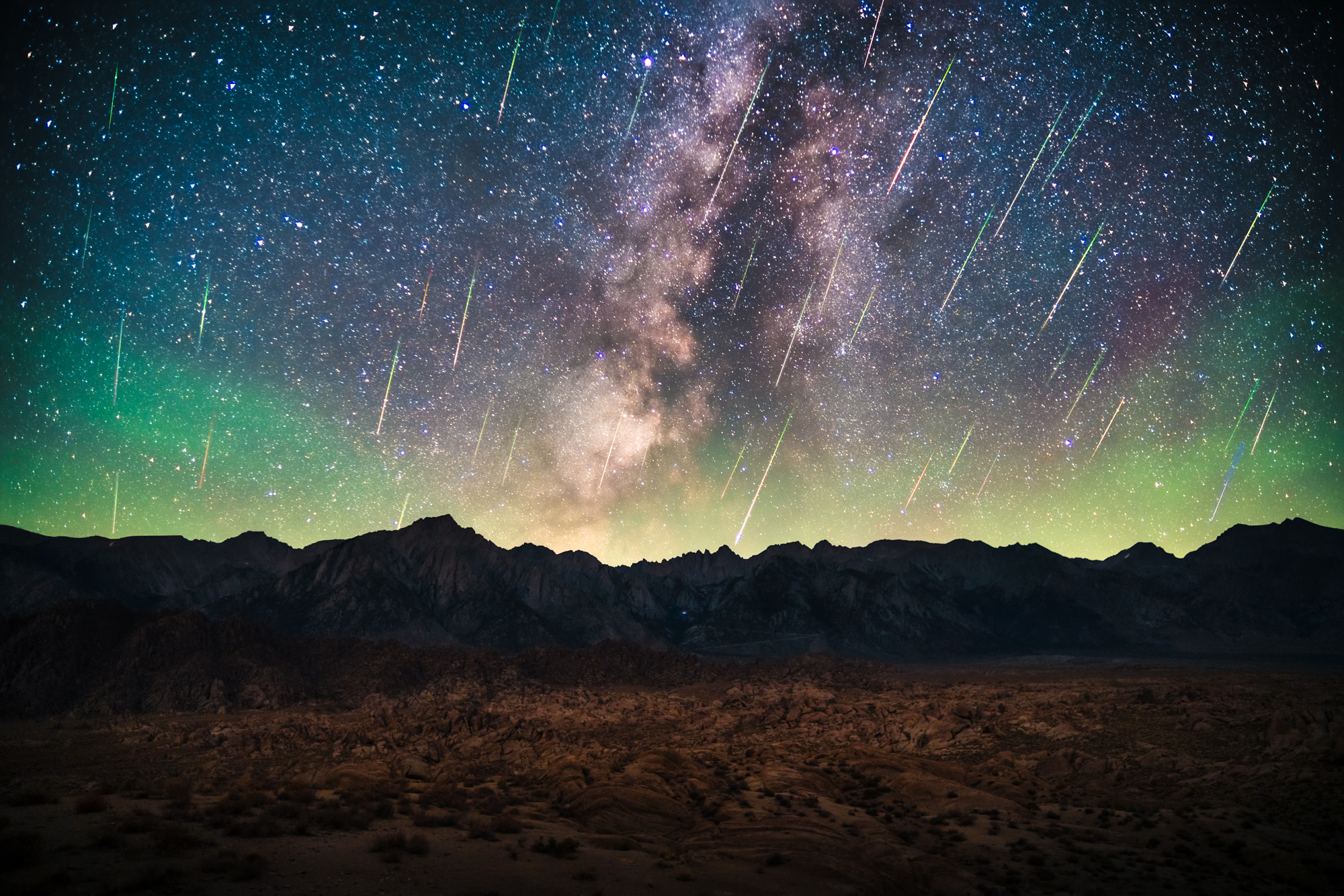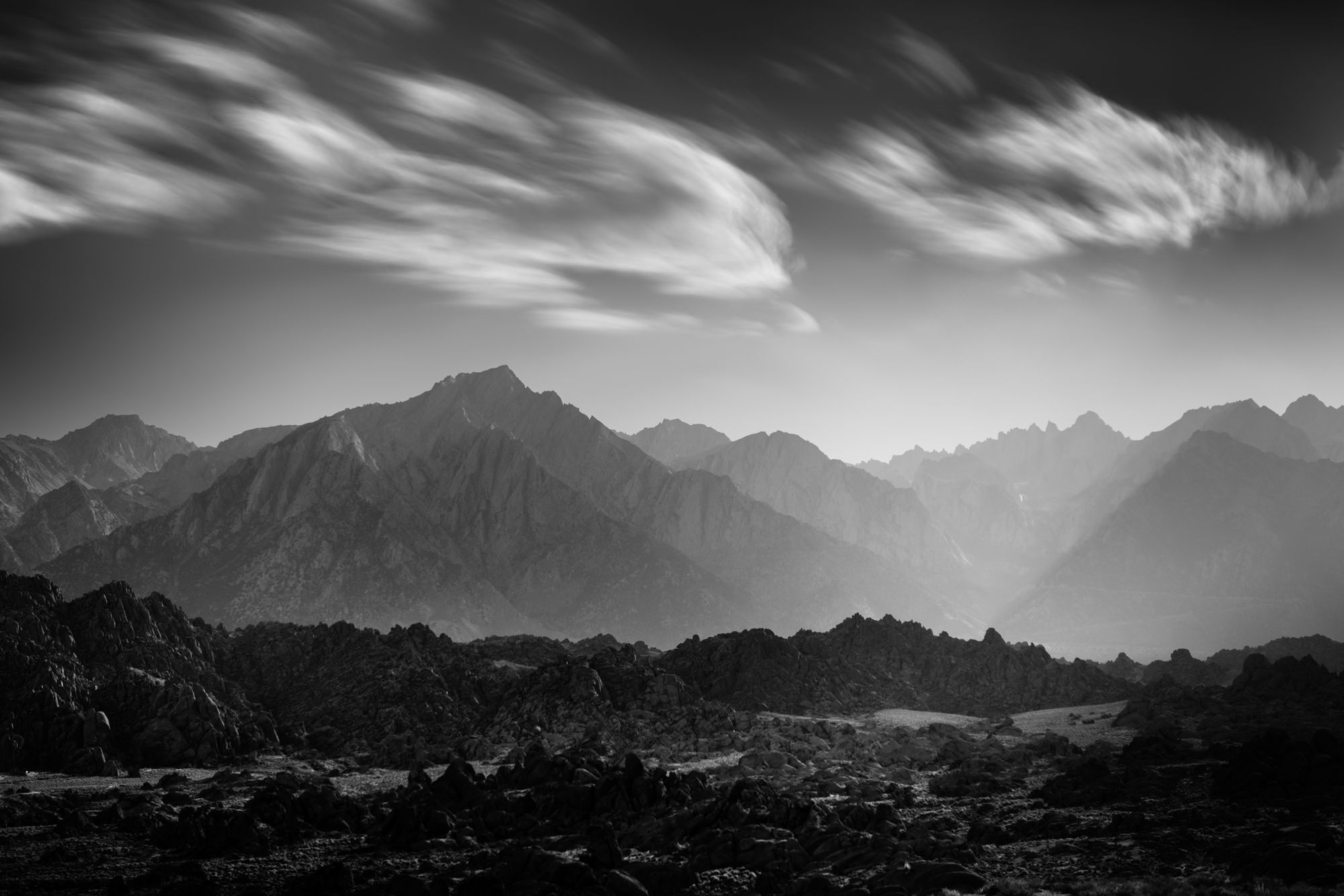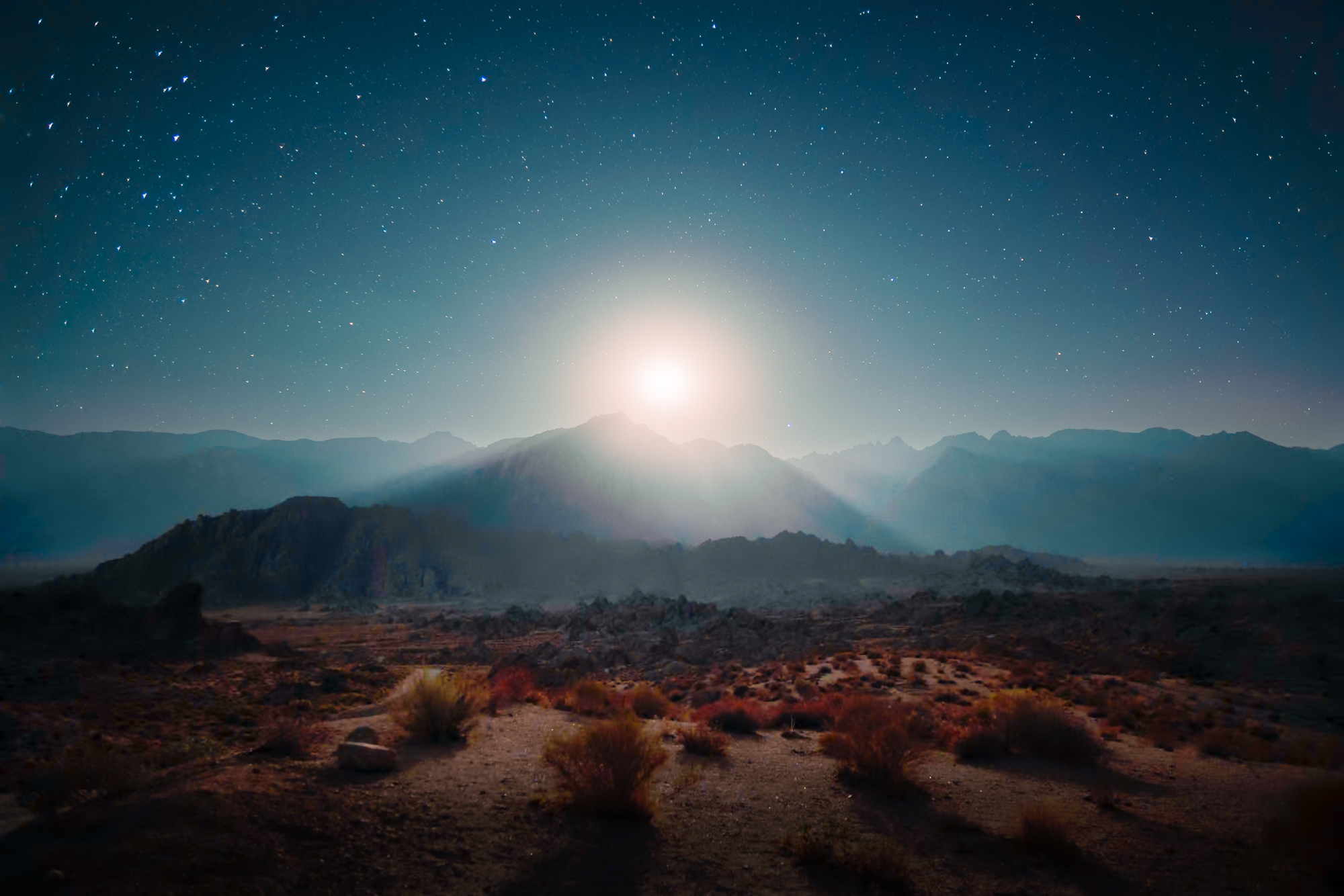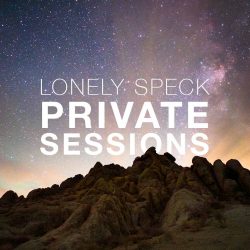Description
Alabama Hills Astrophotography Workshop – August 22–24 2025
This will be a 3-day, 2-night immersive astrophotography workshop beneath the dark skies of California’s Eastern Sierra. With guided instruction, hands-on field shoots, and classroom editing sessions, you’ll gain the skills and confidence to capture your best Milky Way images yet. Hosted during the new moon phase, we’ll have completely moonless nights, perfect for shooting the Milky Way throughout the course of the night.
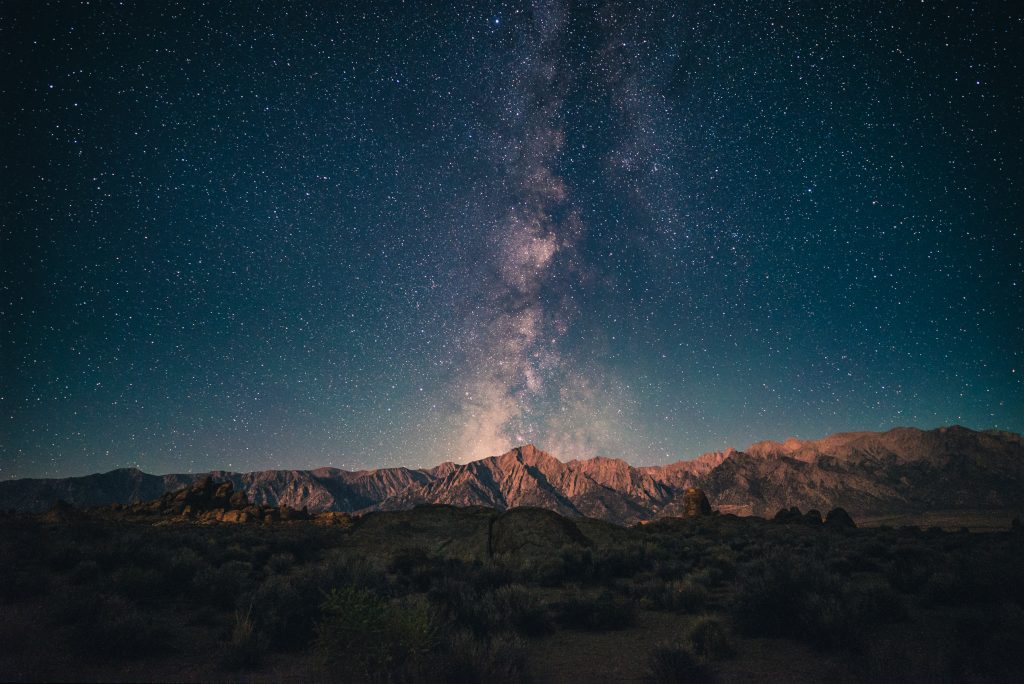
This Alabama Hills astrophotography workshop includes in-depth classroom sessions, two extended nighttime field excursions, and guided post-processing instruction. We’ll cover everything from essential use of gear and exposure techniques, Milky Way planning with apps like PhotoPills, and dip our toes into advanced techniques like ultra-high-resolution panoramic workflows and time lapse exposure stacking and blending. Together, we’ll plan our compositions and head into the field to bring them to life beneath the dark Eastern Sierra sky.
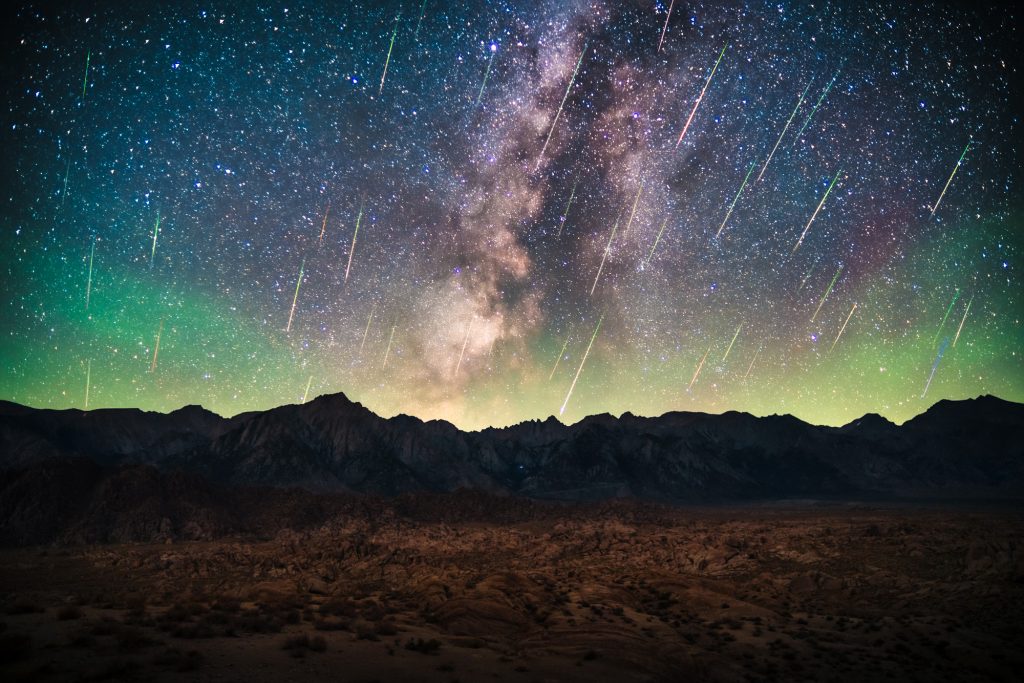
Our field sessions will take place at some of the most iconic night photography locations in The Alabama Hills, including Mobius Arch, Boot Arch, Movie Road, and Jericho Overlook. We’ll shoot from sunset well into the night—chasing the Milky Way during completely moonless skies in a Bortle 2 area.
🌌 Workshop Summary
Dates: August 22–24, 2025 (Friday–Sunday)
- Location: Alabama Hills National Scenic Area + Lone Pine, CA
- Group Size: Limited to 7 participants
- Instructor: Ian Norman (Founder of Lonely Speck)
This workshop is designed to help photographers of all levels master the art of nightscape photography—whether you’re new to photographing the Milky Way or looking to refine your technique for large-format panoramas. Since we’ll be exploring some advanced techniques, you should be relatively comfortable and familiar with your camera equipment.
📸 What You’ll Learn
- How to plan shots using apps and other tools like PhotoPills
- How to shoot clean, detailed images of the Milky Way
- Advanced exposure techniques for noise-reduction, blending and improved dynamic range
- How to create gigapixel level astrophotography panoramas with minimal gear
- Efficient and post-processing using Lightroom & Photoshop
The experience is part technical deep dive, part personal retreat, and part celebration of the night sky.
📍 Where’s Class?
Class orientation and all classroom sessions will be held in downtown Lone Pine, just 10 minutes from the entrance to the Alabama Hills. Exact address will be shared before the workshop date
Getting there: Lone Pine is located along US-395, about 3.5 hours from Los Angeles and 1 hour south of Bishop. Free street parking is available throughout town. Carpooling is encouraged.
Cell service is generally reliable in town.
📅 Itinerary Overview
Exact start times will be sent prior to workshop start.
Day 1 – Friday, Aug 22
- Afternoon – Welcome, orientation and planning instruction
- Early Evening – Dinner Break
- 6:00 PM–4:00 AM – Field shoot in Alabama Hills
Day 2 – Saturday, Aug 23
- Late Morning – Image review and post-processing session
- Midday Lunch Break – Check on cats
- Afternoon – Advanced post processing (panoramas, stacking, blending)
- Early Evening– Dinner Break
- 6:00 PM–4:00 AM – Field shoot in Alabama Hills
Day 3 – Sunday, Aug 24
- Late Morning – Final post-processing, timelapse compiling, panorama rendering and wrap-up
- Afternoon – Class end
💼 What’s Included
- Three days of instruction with Ian Norman
- Two full nights of guided astrophotography fieldwork
- Post-processing materials, example RAW files, premium processing presets
- One-on-one feedback and Q&A
- Exclusive access to the Lonely Speck Alumni Discord Channel and forum for maintaining long term connections and consultation from Ian Norman and other past and future workshop participants.
🚫 What’s Not Included
- Travel, lodging, or meals
- Transportation to/from field locations (carpooling will be encouraged to minimize impact)
- Camera gear, laptop, or software licenses
🎒 What to Bring
Camera Equipment:
- DSLR or mirrorless camera
- Lenses: Generally, for landscape astrophotography, we will want to work with relatively wide angle lenses from 10mm to 50mm equivalent and low f/number apertures. (f/2.8 or lower f/numbers are highly recommended for astrophotography)
- Super wide-angle lens (e.g. 14mm/2.8, 16-35mm/2.8, 18mm/2.8)
- Standard Fast Prime (e.g. 35mm f/1.8, 50mm f/1.4, 40mm f/1.4).
- Optional: Telephoto (e.g 85mm f/1.8, 70-200mm, etc), for optional deepscape work or daytime landscapes
- If you have questions about what equipment to choose, please email me at [email protected]
- Lenses: Generally, for landscape astrophotography, we will want to work with relatively wide angle lenses from 10mm to 50mm equivalent and low f/number apertures. (f/2.8 or lower f/numbers are highly recommended for astrophotography)
- Sturdy Tripod
- Intervalometer or remote shutter (optional)
- Headlamp with red light mode
- Laptop with Lightroom and Photoshop installed (for classroom sessions). Alternative RAW editing software may be acceptable (Capture One, ON1, Luminar, Pixelmator), please email me if you plan to use an alternative editor.
- Rocket blower and lens cloth, lens/sensor cleaning fluid, lens wipes, sensor swabs
- Extra batteries, charger, and memory cards
- Optional: Panorama head, Star tracker (e.g. MSM Nomad)
Recommended Clothing and Support Items:
- Layered clothing, jacket– nights are expected to be between 60-80F, but can still get cold, even in summer
- Wide brimmed hat
- Sunglasses
- Sunscreen
- Comfortable hiking shoes or hiking boots
- 2x 1L bottles of water per night + snacks
- Trekking Poles
⚠️ Physical Requirements & Conditions
Field sessions involve walking up to 1 mile over uneven terrain in the dark. A moderate level of physical fitness is recommended. Participants should be comfortable staying alert and active late into the night (up to 4 AM).
Weather in August can be hot during the day (mid 80s–100s°F) and cool at night (as low as 40s–50s°F). Please plan accordingly. Locations are remote, and cell service may be limited.
🚻 Logistics and Leave No Trace
- All participants will follow Leave No Trace ethics — pack it in, pack it out
- Full lights-out will be encouraged during shooting sessions
- Group travel will be limited to carpooling in 2–3 vehicles to reduce parking impact
🏨 Lodging Suggestions
I recommend staying in Lone Pine, CA for quick access to the workshop classroom and Alabama Hills. Some local lodging options:
💵 Payment & Booking
Workshop Fee: $795 USD
You must pay in full to reserve your spot.
🔁 Cancellation Policy
- Cancel on or before August 8, 2025 → Full refund minus $50 fee
- Cancel after August 8, 2025→No refund unless we can fill your spot
- If we cancel this workshop due to unforeseen circumstances, we will refund your tuition or transfer it to another class.
- We make no guarantees regarding clouds, clear skies, rain, sun, or Milky Way visibility. Because we plan to photograph no matter what the conditions are, no refunds will be given in the event weather prevents us from photographing the Milky Way.
📩 Questions?
Email Ian at [email protected] — happy to help with travel tips, gear questions, or anything else you’d like to know before booking.
